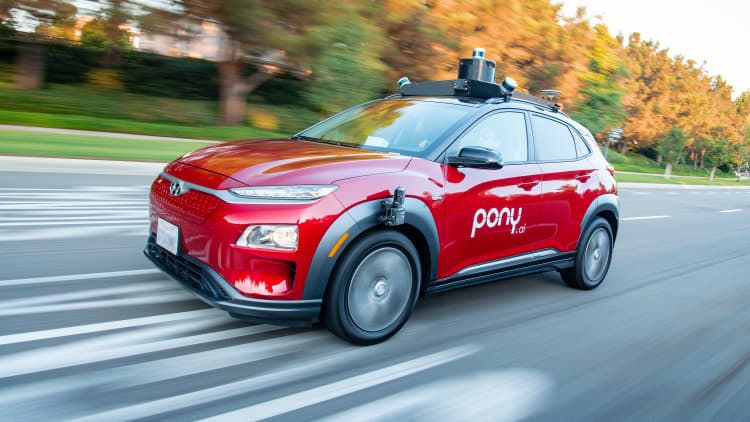Nandini Roy Choudhury, writer
Brief news
- Elon Musk is seeking a federal court injunction to stop OpenAI’s transition to a for-profit entity, alleging violations of federal racketeering and antitrust laws.
- Musk’s legal team claims OpenAI and Microsoft are engaging in a “group boycott” to restrict investment in competitors like Musk’s xAI.
- OpenAI, which began as a non-profit, is now valued at $157 billion and faces increasing competition in the rapidly growing generative AI market.
Detailed news
Elon Musk is petitioning a federal court to prevent OpenAI from transitioning into a for-profit entity.
On Friday, attorneys representing Musk, his AI startup xAI, and former OpenAI board member Shivon Zilis submitted a preliminary injunction request against OpenAI. The injunction would also prevent OpenAI from purportedly requiring its investors to refrain from funding competitors, such as xAI and others.
The most recent court filings indicate a further escalation in the legal dispute between Musk, OpenAI, and its CEO Sam Altman, as well as other parties and supporters who have been involved for an extended period, such as Microsoft and tech investor Reid Hoffman.
Musk initially filed a lawsuit against OpenAI in March 2024 in a San Francisco state court. However, he subsequently withdrew the complaint and re-filed it in federal court several months later. In their complaint, attorneys for Musk in the federal suit, led by Marc Toberoff in Los Angeles, contended that OpenAI has violated federal racketeering, or RICO, laws.
In mid-November, they broadened their complaint to include allegations that Microsoft and OpenAI had violated antitrust laws. The Chat GPT-maker allegedly requested that investors refrain from investing in rival companies, including Musk’s most recent venture, xAI.
Microsoft declined to provide a response
The attorneys for Musk contend in their motion for preliminary injunction that OpenAI should be prohibited from “benefiting from wrongfully obtained competitively sensitive information or coordination via the Microsoft-OpenAI board interlocks.”
An OpenAI spokesperson stated in a statement that Elon’s fourth attempt, which once again recycles the same baseless complaints, is entirely without merit.
ChatGPT has become a major success, igniting a significant corporate interest in AI and related large language models, and OpenAI has emerged as one of the largest ventures in recent years.
Musk has since announced the launch of xAI in July 2023. His newer AI business, Grok, has released its chatbot and is raising up to $6 billion at a $50 billion valuation. This is in part to purchase 100,000 Nvidia processors, as reported earlier this month.
The lawyers wrote in the filing that Microsoft and OpenAI are now attempting to solidify their dominance by cutting off competitors’ access to investment capital (a group boycott), while continuing to benefit from years of shared competitively sensitive information during the formative years of generative AI.
The attorneys stated that the terms that OpenAI requested that investors adhere to amounted to a “group boycott” that “obstructions xAI’s access to critical investment capital.”
The lawyers subsequently emphasized that OpenAI “cannot lumber about the marketplace as a Frankenstein, stitched together from whichever corporate forms serve the pecuniary interests of Microsoft.”
CNBC reported that the Federal Trade Commission would continue to monitor the influence of two companies over the AI industry, despite Microsoft’s decision to relinquish its observer membership on OpenAI’s board in July.
At the outset of the year, FTC Chair Linda Khan declared that the federal agency would conduct a “market inquiry into the investments and partnerships being formed between AI developers and major cloud service providers.” The FTC identified OpenAI, Amazon, Alphabet, Microsoft, and Anthropic as companies that were included in the study.
In the filing, Musk’s attorneys also contend that OpenAI should be prohibited from “benefiting from wrongfully obtained competitively sensitive information or coordination via the Microsoft-OpenAI board interlocks.”
In 2015, OpenAI emerged as a non-profit organization. Subsequently, in 2019, it transitioned to a capped-profit model, in which the OpenAI non-profit served as the regulating body for its for-profit subsidiary. It is currently in the process of transitioning to a wholly for-profit public benefit corporation, which could potentially increase its appeal to investors. CNBC previously reported that the restructuring proposal would also enable OpenAI to maintain its non-profit status as a distinct entity.
Microsoft’s fiscal first-quarter earnings report in October disclosed that it would incur a $1.5 billion loss in the current period, primarily as a result of an anticipated loss from OpenAI, despite the fact that it has invested nearly $14 billion in the company.
The startup was valued at $157 billion when OpenAI completed a significant funding round in October. The financing was spearheaded by Thrive Capital, with Microsoft and Nvidia serving as additional investors.
Startups like xAI and Anthropic, as well as technology titans like Google, have posed a growing threat to OpenAI. According to recent data from Menlo Ventures, the generative AI market is expected to surpass $1 trillion in revenue within the next decade, and business expenditure on generative AI has increased by 500% this year.
Source : CNBC news




